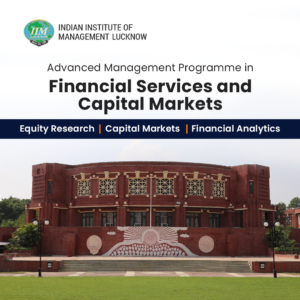Last updated on September 1st, 2025 at 03:10 pm
Imagine a vast marketplace bustling with activity. On one side, businesses and governments seek capital to fuel their growth. On the other, individuals like you and me, brimming with savings and aspirations, look for avenues to make those savings grow. This dynamic marketplace is the capital market, and its intricate structure plays a crucial role in shaping your investment strategies.
Rising IPO activity in the third quarter brings some optimism for a revival in 2024 capital markets. Still, ongoing increases in long-term interest rates suggest that rates will stay high for an extended period. This situation, known as the bear steepening of the yield curve, happens when long-term rates rise faster than short-term ones and often signals an upcoming recession. Higher capital costs might reduce investors’ willingness to take risks.
Let’s embark on an investigative journey, unraveling the key elements of financial markets architecture and how they influence your investment decisions. Buckle up as we navigate through primary vs. secondary markets, explore diverse investment planning, and discover the impact of regulations and information flow.
What is the structure of capital markets?
The world of finance can feel like a complex maze, but the core structure of capital markets is actually quite straightforward. Think of it as a giant marketplace where businesses and governments raise money (capital) by selling financial instruments, and investors like you and me put our money to work with the goal of making it grow. Let’s break down this marketplace into its key elements and see how they influence your investment decisions.
The Duality of Capital Markets: Primary vs. Secondary
Consider the capital market as a coin with two sides. The primary market is where new securities are created. Here, businesses or governments issue bonds or stocks for the first time in order to raise money for new projects. This is similar to an IPO, which is the first time a firm offers its shares to the general public.
How does the capital market structure affect investment strategies?
The primary market offers a chance to be part of a company’s growth story from the very beginning. However, it comes with inherent risks. IPOs can be volatile, and information about the company might be limited.
The other side of the coin is the secondary market. This is the market where investors exchange already issued securities. Secondary markets include, for example, stock exchanges such as the New York Stock Exchange (NYSE). Here, you can buy and sell stocks, bonds, and other financial instruments from other investors.

Technological Advancements and Market Structure
Technology has revolutionized capital markets, influencing how investments are made and managed.
-
Algorithmic Trading
Algorithmic trading uses computer programs to execute trades based on predefined criteria. It accounts for a significant portion of trading volume in modern markets.
Strategy Implication: Algorithmic trading can enhance the execution speed and efficiency of trades. Investors need to be aware of the potential for increased volatility and the importance of robust risk management systems.
-
High-Frequency Trading (HFT)
HFT entails carrying out a large number of orders very quickly. HFT firms capitalize on minor price discrepancies and short-term market inefficiencies.
Strategy Implication: HFT can impact market liquidity and volatility. Investors need to understand how HFT affects market dynamics and adjust their strategies accordingly.
-
Blockchain and Cryptocurrencies
Blockchain technology and the rise of cryptocurrencies have introduced new asset classes and trading platforms.
Strategy Implication: Investors need to understand the unique risks and opportunities associated with cryptocurrencies. Diversification and thorough research are essential for investing in this emerging market.
What is the secondary market’s influence on your strategy?
It provides liquidity – the ease with which you can buy or sell your investments. This is crucial, as it allows you to adjust your portfolio or exit investments when needed. The capital market lays out an array of investment strategy insights, each catering to different risk appetites and investment goals.
Here are some key players:
- Stocks (Equities): Ownership units in a company. Owning stocks allows you to participate in a company’s growth through potential capital appreciation and dividend payouts.
- Bonds: Essentially, IOUs issued by companies or governments. Investors who purchase bonds lend money for a fixed period and receive interest payments in return. Bonds offer stability and are considered less risky than stocks.
- Mutual Funds and ETFs: These are professionally managed investment baskets containing a variety of stocks, bonds, or other assets. They offer diversification and a convenient way to access a particular market segment.
- Derivatives: These are contracts derived from underlying assets like stocks, bonds, or commodities. Options and futures contracts are popular derivatives used for various investment strategies like hedging or speculation.
Choosing the right instruments depends on your:
- Risk tolerance: Are you comfortable with high volatility, or do you prefer stability?
- Investment horizon: How long do you plan to hold your investments?
Capital markets operate within a framework of regulations. Regulatory bodies like the (SEC) Securities and Exchange Commission in the US establish rules that govern fair disclosure, prevent insider trading, and protect investors’ interests. You can access financial statements, company news, and analyst reports, allowing you to research potential investments thoroughly.
Information Flow
The capital market thrives on information flow. Companies are obligated to disclose financial results and material news, keeping investors informed about their financial health and prospects. Additionally, financial media outlets analyze market trends, company performance, and economic factors.
Being an active information consumer is crucial. Regularly following news and conducting research helps you make sound investment choices. However, be wary of information overload and unsolicited investment advice.
Interactive Learning: Sharpening Your Investment Skills
Now, let’s put theory into practice! Here are some activities to solidify your understanding of how capital market structure influences investment strategies:
- Investment Quiz: Test your knowledge! Identify the most suitable investment instrument for different risk profiles and investment goals.
- Virtual Portfolio Challenge: Build a virtual portfolio using a stock market simulator. Research companies, allocate funds to different instruments, and track your portfolio’s performance.
- Decoding Financial News: Choose a recent financial news article and analyze how it might impact specific investment instruments or market sectors.
The Final Words
Remember, the capital market is a dynamic and ever-evolving landscape. You can create a successful investing strategy that fits your financial objectives and risk tolerance by comprehending its structure, the variety of investment possibilities available, and the significance of information and rules.
Financial Services and Capital Markets Program
You will gain a thorough understanding of digital banking, capital markets, risk management, and fintech sectors by enrolling in Imarticus Learning’s Advanced Management Programme in Financial Services & Capital Markets. Corporate finance, valuation, fundraising, treasury operations, and financial analytics are some of the important topics addressed. High-achieving middle management professionals can use these capital market courses to rekindle their careers and support their move into senior management positions.
You will receive additional perks for future programs and IIM Lucknow Executive Alumni Status by participating in our program. With these capital market courses at Imarticus Learning, you can become one of the prestigious IIM Lucknow alumni and obtain access to the IIM Lucknow campus.
Contact us now to learn more about this transformative opportunity!

